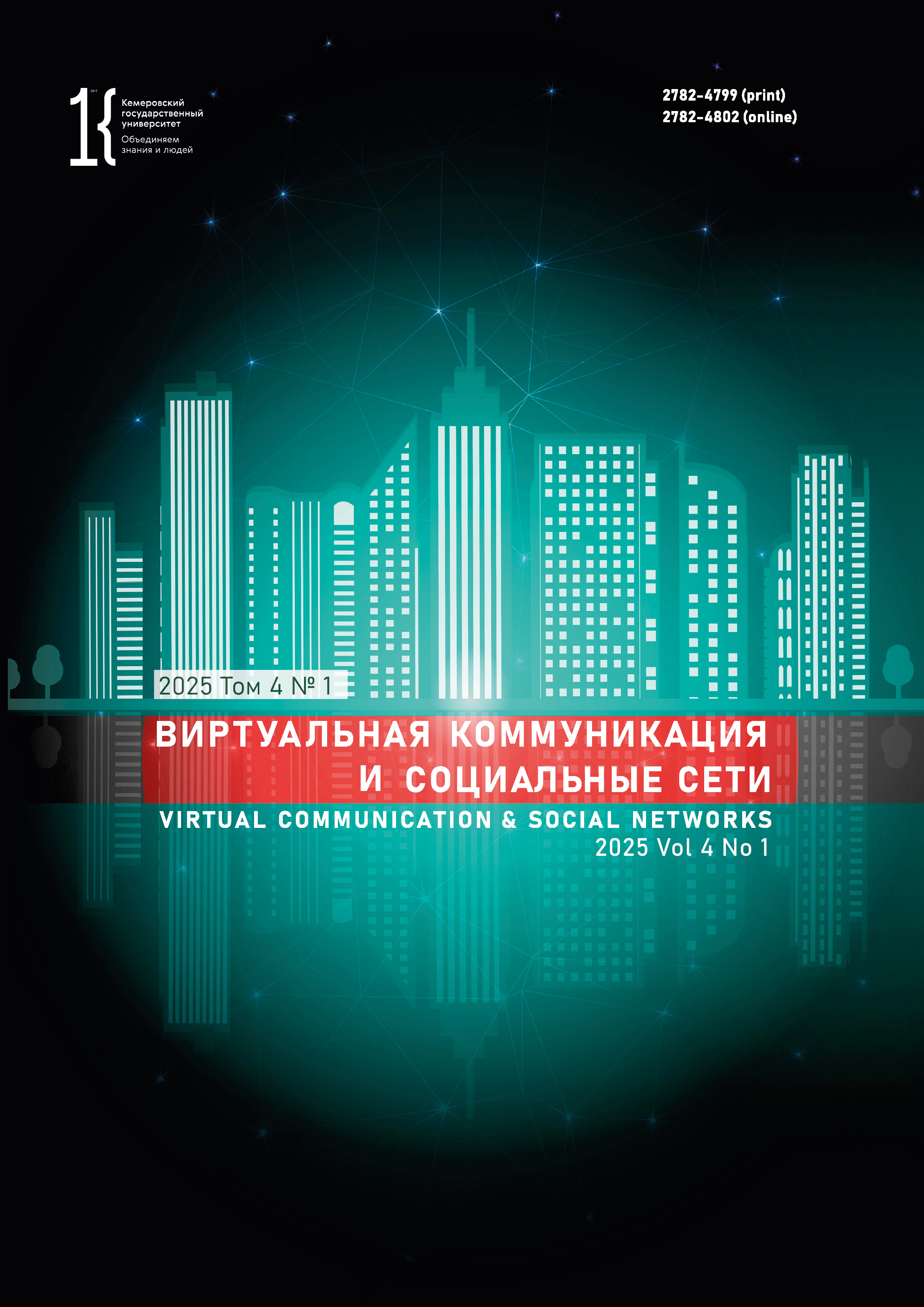Moscow, Russian Federation
student from 01.01.2023 until now
Moscow, Russian Federation
User-generated content makes it possible to identify social practices in ideological communities that were previously invisible to outsiders. The research objective was to check the initial hypothesis that network interaction style depends on the users’ ideological affiliation. The authors studied online communication discourse within VKontakte social network ideological communities during the presidential elections in Russia in March 7–17, 2024. The interdisciplinary research methodology involved critical discourse analysis and speech act theory. The authors developed a scale for assessing arguments in online comments according to the degree of rationality. The analysis covered 1,879 text units retrieved from 12 communities of communists, conservatives, liberals, and nationalists. The study revealed a set of distinctive features of online communication that depended on the ideological affiliation, e.g., a statistically significant correlation between the user’s argumentation techniques and the user’s community affiliation.
interaction, elections, ideology, critical discourse analysis, user-generated content, social networks
1. Adamyants T. Z. Virtual socio-cultural worlds on open internet platforms. Sociologicheskaja nauka i social’naja praktika, 2022, 10(1): 58–72. (In Russ.)] https://doi.org/10.19181/snsp.2022.10.1.8860
2. Badmatsyrenov T. B., Tsydenov A. B., Khandarov F. V. "Third space", "echo-cameras" and online-communities: Reproduction of political ideologies in social media. Political science, 2021, (1): 183–204. (In Russ.)] https://doi.org/10.31249/poln/2021.01.08
3. Ignatjeva O. A. Discourse analysis of political judgments in the context of digitalization. Political expertise: POLITEX, 2021, 17(3): 259–272. (In Russ.)] https://doi.org/10.21638/spbu23.2021.303
4. Misnikov Yu. G., Filatova O. G. Online discussion as a form of e-participation: Russian specifics. Monitoring of Public Opinion: Economic and Social Changes, 2019, (5): 320–340. (In Russ.)] https://doi.org/10.14515/monitoring.2019.5.15
5. Mikhaylenok O. M., Malysheva G. A. Political effects of social networks in Russia. Sociological Studies, 2019, (2): 78–87. (In Russ.)] https://doi.org/10.31857/S013216250004012-6
6. Chen L., Chen J., Xia C. Social network behavior and public opinion manipulation. Journal of Information Security and Applications, 2022, 64. https://doi.org/10.1016/j.jisa.2021.103060
7. Humprecht E., Amsler M., Esser F., Van Aelst P. Emotionalized social media environments: How alternative news media and populist actors drive angry reactions. Political Communication, 2024, 41(4): 559–587. https://doi.org/10.1080/10584609.2024.2350416
8. Fairclough N. Language and power. NY: Lomgman, 1989, 259.
9. Labinaz P., Sbisà M. The problem of knowledge dissemination in social network discussions. Journal of Pragmatics, 2021, 175: 67–80. https://doi.org/10.1016/j.pragma.2021.01.009
10. Marsili N., Green M. Assertion: A (partly) social speech act. Journal of Pragmatics, 2021, 181: 17–28. https://doi.org/10.1016/j.pragma.2021.03.016
11. Sbisà M. (Im)politeness and the human subject. The philosophy of (Im)politeness. Advances in (Im)politeness studies, ed. Xie C. Cham: Springer, 2021, 157–177. https://doi.org/10.1007/978-3-030-81592-9_9
12. Sbisà M. Political agency and identity in the framework of an interactional approach. Political Identity and the metaphysics of polities, eds. De Anna G., Dozzi M. NY: Routledge, 2023, 59–75. https://doi.org/10.4324/9781003255185-5
13. Schlosser A. E. Self-disclosure versus self-presentation on social media. Current Opinion in Psychology, 2020, 31: 1–6. https://doi.org/10.1016/j.copsyc.2019.06.025
14. Searle J. R. A taxonomy of illocutionary acts. Language, mind and knowledge, ed. Gunderson K. Minneapolis: University of Minnesota Press, 1975, 344–369.
15. Spears R. Social influence and group identity. Annual Review of Psychology, 2021, 72: 367–390. https://doi.org/10.1146/annurev-psych-070620-111818
16. Van Dijk T. A. Discourse and knowledge. The Routledge handbook of discourse analysis, eds. Gee J. P., Handford M. London: Routledge, 2012, 587–603.
17. Van Dijk T. A. Politics, ideology and discourse. Elsevier encyclopedia of language and linguistics, ed. Wodak R. Oxford: Elsevier, 2006, 728–740.
18. Van Erkel P. F. A., Van Aelst P. Why don’t we learn from social media? Studying effects of and mechanisms behind social media news use on general surveillance political knowledge. Political Communication, 2021, 38(4): 407– 425. https://doi.org/10.1080/10584609.2020.1784328
19. Vincent A. Modern political ideologies. 4th ed. Hoboken: Blackwell Publishing, 2023, 400.
20. Zappettini F., Ponton D. M., Larina T. V. Emotionalisation of contemporary media discourse: A research agenda. Russian Journal of Linguistics, 2021, 25(3): 586–610. https://doi.org/10.22363/2687-0088-2021-25-3-586-610
21. Zmigrod L. A neurocognitive model of ideological thinking. Politics and the Life Sciences, 2021, 40(2): 224–238. https://doi.org/10.1017/pls.2021.10















